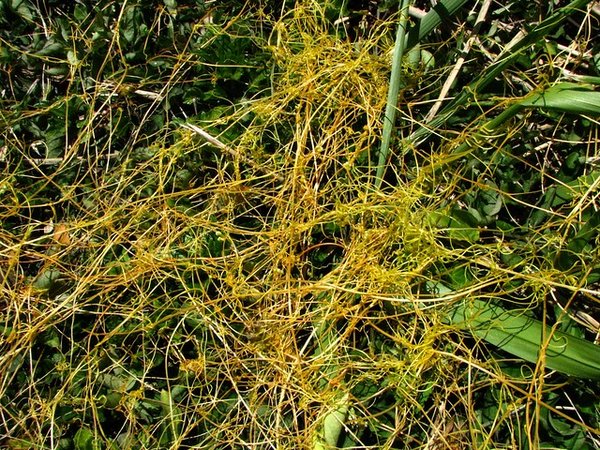- Share this article
- Subscribe to our newsletter
Invasive weed threatens yields in sub-Saharan Africa
The invasive alien weed Field Dodder (Cuscuta campestris) could be a serious threat to agriculture and biodiversity across sub-Saharan Africa, according to researchers from Kenya’s Kenyatta University. It could reduce projected crop yields in sub-Saharan Africa by nearly 30 per cent by 2029.
Field Dodder, a yellow weed native to North America, is spreading in sub-Saharan Africa at an increasing rate, in countries such as Botswana and Ethiopia. The invasive plant is affecting both indigenous and exotic host plant species. According to the researchers, the alien weed is persistently devastating the African ecosystem and threatening to wipe out the continent’s rich biodiversity.
Scientists estimate that over USD 1.1 billion will be needed for research on how to completely eradicate the weed and to mobilise farmers and policymakers to tackle the scourge. They say that herbicides have mostly been used to control the weed in its native continents and in Africa farmers will be forced to use large amount of their income to buy these chemicals rather than reinvest in agricultural food production.
According to the International Centre of Insect Physiology and Ecology (icipe), based in Kenya, it is projected that the threat of alien species in sub-Saharan Africa will directly affect the attainment of three Sustainable Development Goals: SDG1 (no poverty) SDG2 (zero hunger) and SDG3 (good health and well-being).
(Nicholas Okeya, SciDev.Net/ile)
Read more:
https://www.scidev.net/global/agriculture/news/invasive-weed-cut-crop-yields.html?
More information on field dodder (Cuscuta campestris) at CABI Website:
https://www.cabi.org/isc/datasheet/17111
Photo source:
https://www.flickr.com/photos/dweickhoff/6036912316





Add a comment
Be the First to Comment